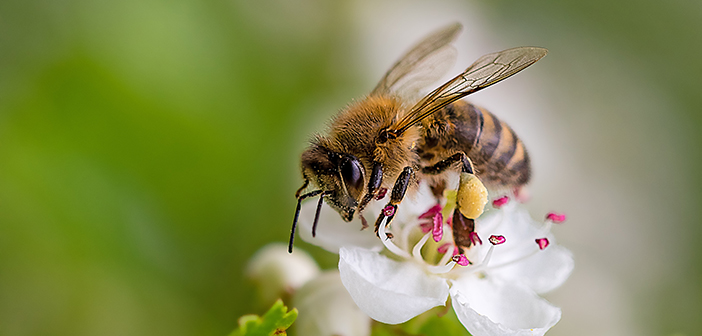At the start of Bees’ Needs Week, new research today (July 18) has revealed that improving pollinator populations could help stabilise the production of important crops like oilseeds and fruit.
The new research, published by the University of Reading, found that crops visited by pollinators had more stable yields, with 32% less variation than those crops grown in the absence of pollinators.
Thousands of pollinators – bumblebees, butterflies, moths, flies and honeybees – are essential for food production and biodiversity. But they are under threat, facing growing challenges from climate change, pests and diseases, invasive species and habitat loss.
This year Bees’ Needs Week (July 18-24) makes a call on the public to take five simple actions to help pollinators:
- Grow more flowers, shrubs and trees;
- Let your garden grow wild;
- Cut your grass less often;
- Don’t disturb insect nest and hibernation spots; and
- Think carefully about whether to use pesticides.
Biodiversity Minister Lord Benyon said: “From bumblebees to moths and butterflies, pollinators are a critical part of our natural ecosystem, playing an essential role in upholding biodiversity and food production.
“Creating wildflower meadows, insect hotels or even a humble window box will boost nature. We can all play our part to support our vital pollinators.”
Marian Spain, chief executive of Natural England, added: “Pollinators are a crucial part of a healthy environment which we all depend on. There are many things we can do to help them thrive, from getting involved in monitoring their numbers to leaving any outdoor space we have to flourish. Collectively, even small actions all help pollinators do the job we need them to.”


